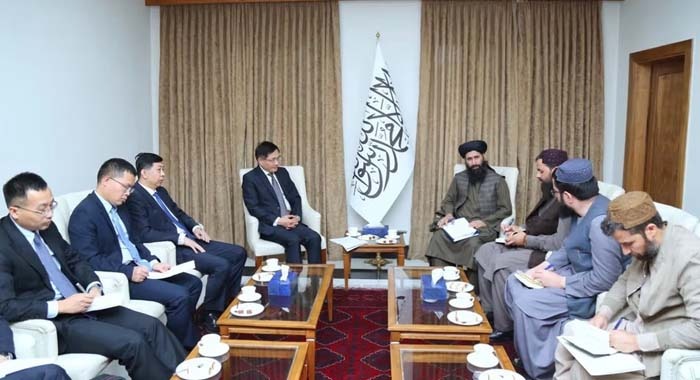While the Pakistan–Afghanistan border has remained quiet since the Doha Ceasefire Agreement of October 19, diplomatic friction between Islamabad and the Taliban-led Kabul administration continues to simmer.
In a recent meeting with China’s special envoy for Afghanistan, Yue Xiaoyong, the Taliban’s deputy foreign minister Naeem Wardak voiced frustration over what he described as Pakistan’s conduct during the past four years. According to a statement from the Taliban foreign ministry, Wardak said that although Kabul remains committed to dialogue, Pakistan’s actions had “tested the Taliban administration’s patience” and compelled it to “respond in kind.”
The meeting, held in Kabul, focused on bilateral relations and efforts to de-escalate tensions between the two neighbours. The Taliban’s statement quoted Yue Xiaoyong as saying that Beijing seeks to play a constructive role in easing differences between Pakistan and the Taliban government. He also commended Qatar and Türkiye for facilitating the recent ceasefire, describing their mediation as a positive step toward regional stability.
Wardak thanked China for its “continued cooperation and support,” citing long-standing ties and shared interests between the two countries. He reaffirmed that the Taliban administration seeks engagement with all nations on the basis of mutual respect and reiterated that Afghan territory would not be used to threaten any other state.
China, which has steadily deepened its engagement with the Taliban in recent years — including by formally transferring the Afghan embassy in Beijing to Taliban representatives — now finds itself balancing relations between Kabul and its long-standing strategic ally, Pakistan.
Analysts note that Beijing views the current strain between Pakistan and the Taliban as counterproductive to its broader regional interests, particularly its Belt and Road Initiative (BRI) plans to expand trade and connectivity across South and Central Asia.
Although cross-border hostilities have ceased under the Doha accord, political statements from Taliban officials — including objections to terminology used in the agreement and differing interpretations of its clauses — highlight ongoing sensitivities in the relationship. For now, both sides appear to be maintaining restraint, while regional actors such as China continue to encourage dialogue over confrontation.





